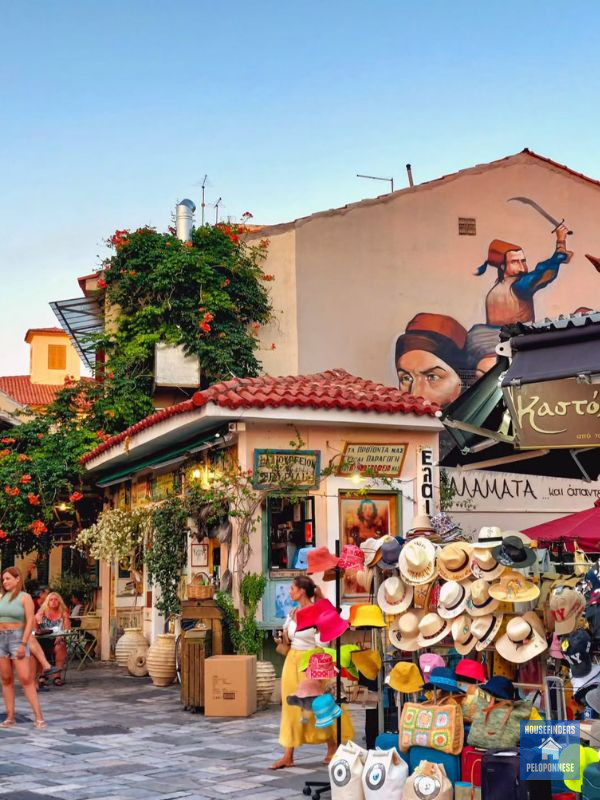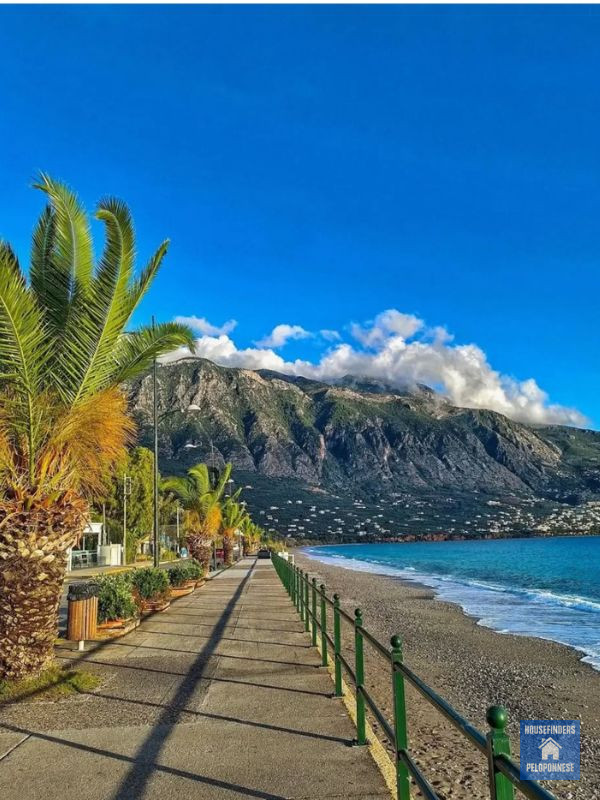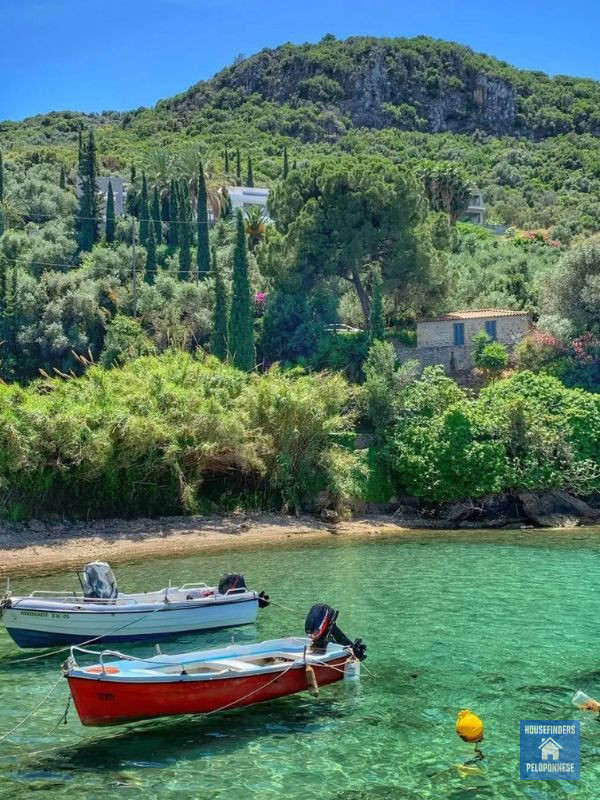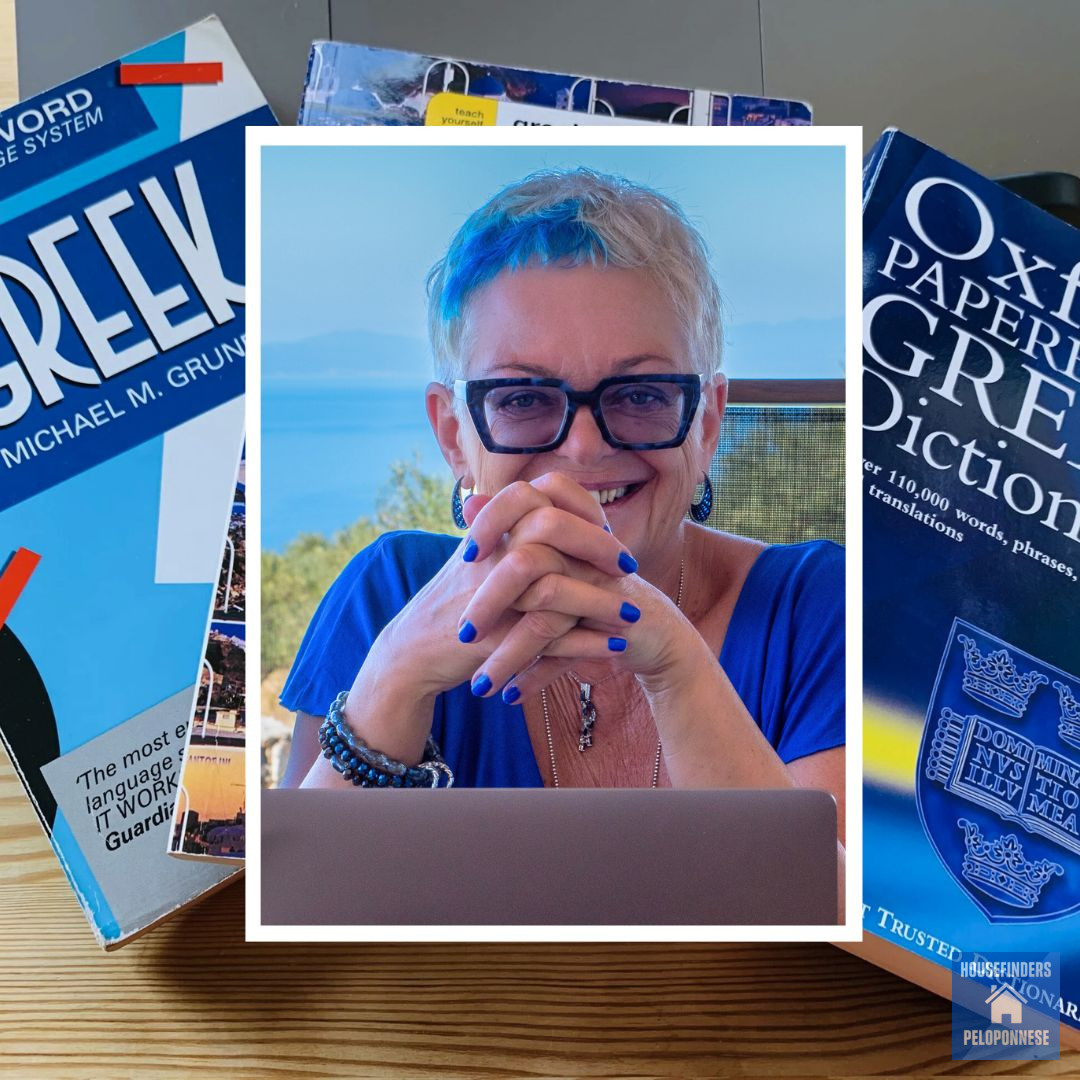 ‘It’s all Greek to me’ is a way of saying that something is almost impossible to understand because of its complexity or unfamiliarity. And while it is true that Greek is one of the most difficult European languages, believe me, it is definitely not ‘mission impossible’!
‘It’s all Greek to me’ is a way of saying that something is almost impossible to understand because of its complexity or unfamiliarity. And while it is true that Greek is one of the most difficult European languages, believe me, it is definitely not ‘mission impossible’!
For those of you who, like me and Elias, have chosen to move or stay for longer periods in Greece, it is quite important to be able to communicate with Greeks in their language. It’s not just about ‘communicating’ but also about showing respect for Greece’s history and culture. Even though I can understand and speak basic everyday Greek, I can’t say that I ‘can’ speak Greek.
I tried Duolingo but after a while it became quite boring for me, perhaps because it wasn’t challenging enough? I bought some online courses but it wasn’t stimulating enough either. I think that this beautiful language must not only be ‘learned’ but also “understood”. Based on the culture and history of the language. So let me introduce you to Leda Christopoulou (based in Kalamata), who has the right attitude and an excellent ‘toolbox’ for you and me!
Love for language, storytelling, and human connection
Kalimera Leda, thank you very much for agreeing to do this interview. Can you begin by telling us about yourself and your life so far?
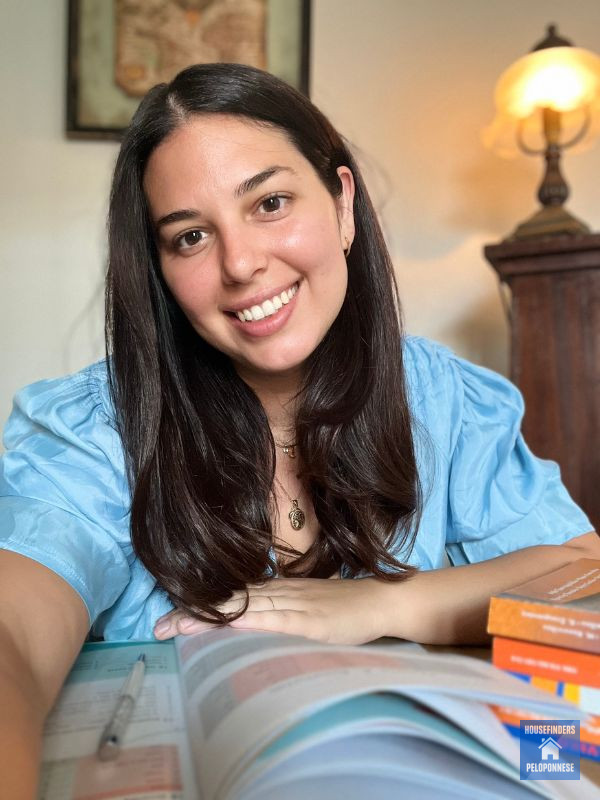 Kalimera, Elwira! Thank you so much for the invitation — I was genuinely touched when you reached out. I think that when people share the same love for Greece, it’s only natural that our paths eventually cross!
Kalimera, Elwira! Thank you so much for the invitation — I was genuinely touched when you reached out. I think that when people share the same love for Greece, it’s only natural that our paths eventually cross!
I was born and raised in beautiful Kalamata — a place I’m deeply connected to, both emotionally and culturally. I’ve always had a strong love for language, storytelling, and human connection.
I initially studied journalism and worked in the media industry in Athens for several years. But my real passion has always been history, culture and education. I changed direction, continued my studies and eventually found my way into teaching.
My academic background includes studies in Greek history, inclusive education, and teaching Greek as a second or foreign language — a combination that allows me to see the Greek language not just as a system of grammar and words, but as a living expression of identity, memory, and belonging.
Over the past few years, I’ve been teaching Greek to adults from all over the world. What I truly love is helping people not only learn Greek, but also understand it — its rhythm, its logic, its deep connection to everyday life.
It isn’t just about speaking — it’s about belonging
It is an advantage to start learning the language when you are young, but for people like me, who are adults, is it completely hopeless? Or do we have a chance to speak Greek fluently?
Absolutely not hopeless — in fact, far from it! I truly believe (and I see it every day with my students) that adults are more than capable of learning Greek, even to a fluent level. It might not happen overnight, but it is absolutely possible — and often deeply rewarding.
Greek has its challenges: a different alphabet, cases, verb tenses that don’t always behave! But adults have motivation, emotional connection, life experience, and often a real love for Greece itself. They don’t learn Greek for school credits. That makes a huge difference.
So, no — you’re not too old, and it’s definitely not too late. You don’t need to be perfect, you just need to be curious, consistent, and a little brave. And I promise you, the language will meet you halfway. Because learning Greek as an adult isn’t just about speaking — it’s about belonging.
There’s no one-size-fits-all approach when it comes to learning Greek
Can you explain the main ways you help people to speak Greek? What type of teaching method do you think is the best?
That’s a great question, because there’s no one-size-fits-all approach when it comes to learning Greek — or any language, really. I always start by getting to know the person in front of me. Where are they from? Why do they want to learn Greek? What do they love (or fear!) about the language? This helps me shape each lesson to their needs, interests, and pace.
In general, I believe in learning through real-life situations, small but consistent progress, and always with a connection to culture. We don’t just memorize words — we use them in conversations, everyday examples, even in songs or short stories.
From the very first lesson, we focus on listening and speaking, so that students can start building confidence and using the language actively from day one. Whenever possible, I also take the learning experience outside the classroom — whether that’s going to the local market to learn fruits and vegetables, ordering coffee in Greek, or simply interacting with people in everyday settings. That’s where language really comes alive.
Above all, I want my students to feel safe to make mistakes, to ask questions, and to enjoy the process. Because when learning feels joyful and meaningful, fluency comes much more naturally.
Greek isn’t a “quick fix”
How long does it normally take for an average person to reach a reasonable level of being able to speak and understand Greek?
That’s a question I get asked all the time — and the honest answer is: it depends! Every learner is different. But with regular lessons and a bit of personal practice between classes, most people start feeling more confident in everyday conversations within a few months.
By “reasonable level,” I mean being able to introduce yourself, handle simple daily situations, ask and answer basic questions, shop, order food, and most importantly — understand the rhythm of the language enough to feel comfortable interacting with Greeks.
Some people move faster, especially if they’re surrounded by the language. Others prefer a slower pace — and that’s absolutely fine. For many adult learners, one lesson per week along with small personal efforts is a gentle and sustainable rhythm.
Greek isn’t a “quick fix” — it’s a deep, rich language that rewards patience and consistency. So whether it takes months or years, the most important thing is to enjoy the journey — and to celebrate each little step forward.
Learning a language is not just about knowledge
What is the first step? How do you go about understanding the level of your students? What about reading and writing? Should everyone learn the Greek alphabet first?
That’s such an important question, because everyone comes to Greek with different experiences, goals, and fears. So the first step for me is always a conversation — not a test, just a relaxed chat to understand who the person is, what they hope to achieve, and how comfortable they already feel with the language. Some people are complete beginners, others have tried apps or lived in Greece for years but still feel unsure. That first meeting helps me build a plan that fits them.
As for reading and writing — yes, I believe they are both important parts of learning to speak Greek confidently. But that doesn’t mean we start with grammar books or long texts. I usually introduce the Greek alphabet gradually, alongside speaking and listening practice.
That said, I don’t believe everyone must master the alphabet before they can start speaking. If someone feels more confident starting with spoken Greek, we do that — and we bring in reading and writing step by step. There’s no “one right order” — just the path that works best for each person.
I truly believe that learning a language is not just about knowledge — it’s about trust, timing, and creating the right rhythm for each person. And that requires patience, flexibility, and empathy — three things I bring to every lesson.
The best way to contact Leda Christopoulou
You can meet your student in Kalmata and online, correct? How should they contact you? Is the first step on email or on WhatsApp?
Yes, I teach both online and in-person here in Kalamata, depending on what suits each student best. Some people prefer to meet face-to-face, especially if they live nearby, while others are happy learning from anywhere in the world — and thankfully, technology makes that easy!
The best way to contact me is to simply send me a WhatsApp message (+306934556959). Just say hello, let me know you’re interested, and we can arrange a short call to talk about what you’re looking for. No pressure, no commitment — just a friendly chat to see if it feels like a good fit. I’m always happy to hear from new learners, no matter where they’re starting from.
Can you let us know some things you enjoy doing when you’re not teaching Greek. And also what is the best with your hometown Kalamata?
When I’m not teaching Greek, I enjoy cycling around Kalamata, rehearsing with my local theatre group, or simply having a walk by the sea. I also love books, mystery films, and slow mornings or afternoons — depending on the day — the kind that make you feel present.
And even though I’m a teacher, I see myself as a lifelong learner. I’m always curious, always studying something. It’s what keeps me growing, both personally and professionally. What I love most about Kalamata is its laid-back rhythm that helps you breathe a little deeper.
- Old town of Kalamata -where the past meets the present
- My favourite spot where you can admire both the sea and the mountains
- My secret place is this small beach that I like to swim

